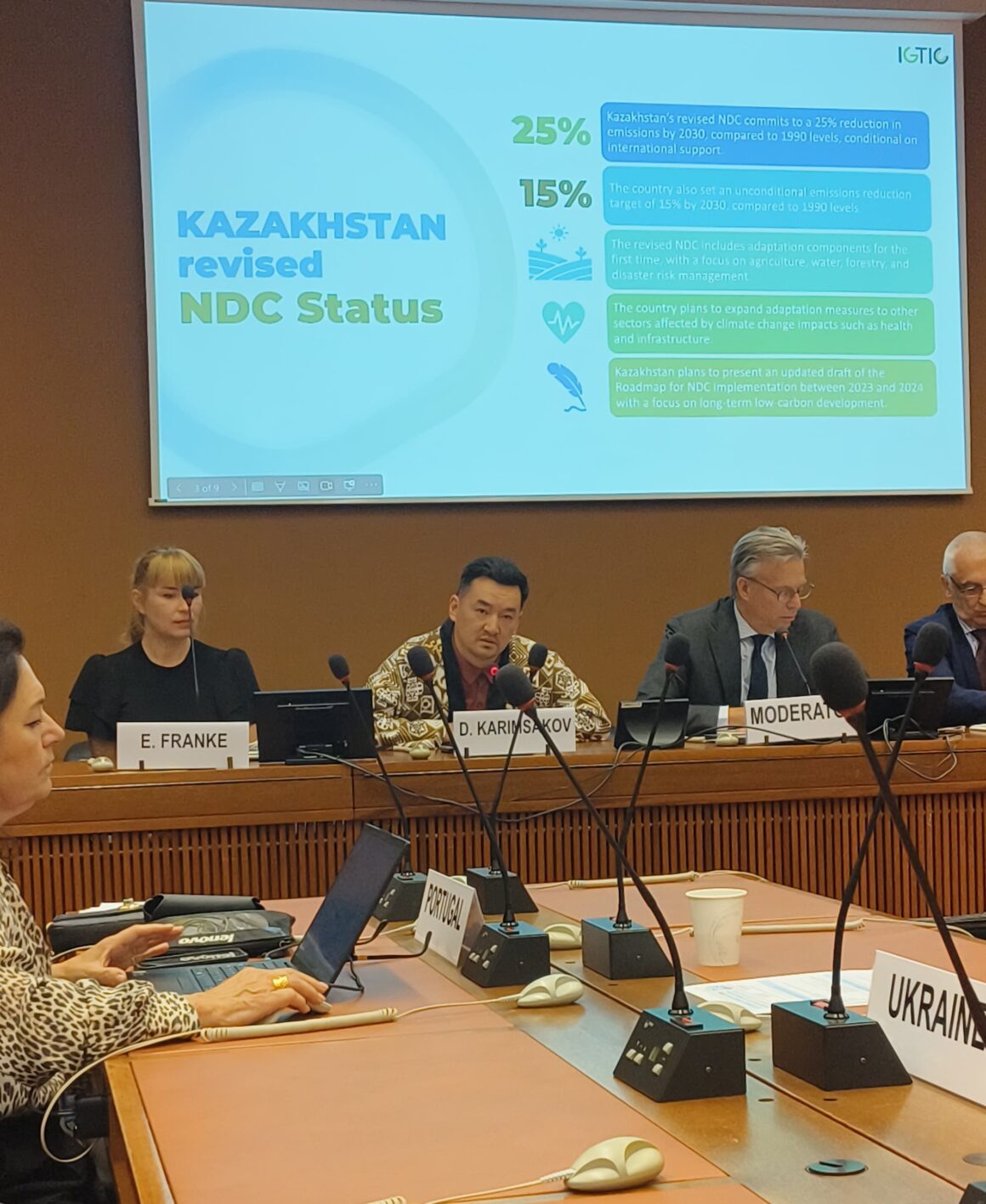In Geneva, Switzerland, during the UNECE Sustainable Energy Week 2024, a session titled “Integrated Energy Efficiency and Renewable Energy in Distributed Energy Systems” took place. The event featured a keynote address by Didar Karimsakov, Chairman of the Board at the International Center for Green Technologies and Investment Projects.
The session was moderated by Dario Liguti, Director of the UNECE Sustainable Energy Department. Notable participants included Naida Tasso, Deputy Chair of the Group of Experts on Renewable Energy (GERE) within the Energy Community, Randolph Braizer of The Hongkong and Shanghai Banking Corporation (HSBC), and Evgenia Franke from the Association for the Development of Renewable Energy in Russia, among others.
During the session, Didar Karimsakov presented the key areas of work of @igtic_kz and its programs, highlighting the following key points:
- Kazakhstan aims to reduce emissions by 25% by 2030 (15% without external support). This requires active development of renewable energy sources, especially in distributed systems, to improve energy access and climate resilience.
- Kazakhstan is actively developing a policy in the field of renewable energy, including auctions and fixed tariffs, which supports both large and small projects. Significant potential in solar and wind energy promotes distributed generation.
- The Center focuses on transitioning to “green” business practices, adapting “green” technologies, stimulating investments, and implementing best available technologies (BAT) to minimize environmental impact.
- One of the key activities of the center is the development of BAT reference guides that help industries implement the best available methods to reduce environmental impact. A total of 16 guides have already been developed, with plans to release another 16 by 2027.
- In collaboration with UNIDO, the GCIP-Kazakhstan program is being implemented to support startups in energy efficiency, renewable energy, waste recycling, and more.
- Our international partnerships are key to promoting Kazakhstan’s “green” initiatives, attracting climate investments to support sustainable projects, and exchanging best practices within the framework of global cooperation.
- In conclusion, Mr. Didar Karimsakov emphasized that “the successful implementation of decentralized systems requires supportive policies, significant investments, and integration of advanced technologies. These approaches contribute to the sustainable development of energy systems and support Kazakhstan’s climate goals.”


